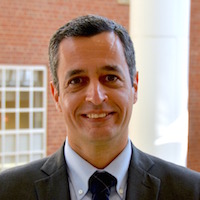UNC Gillings researchers translate Pittsburgh Sleep Quality Index for use in rural Iraq
June 25, 2019
As a young doctor working on complex humanitarian crises in conflict zones in the Middle East, Dilshad Jaff, MD, MPH, program coordinator for solutions to complex emergencies and adjunct assistant professor of maternal and child health at the UNC Gillings School of Global Public Health, witnessed many people suffering from mental health issues. He saw first-hand how stigma around mental health and a lack of knowledge and resources made it challenging to address the high burden of mental health illness in conflict settings.

Dr. Dilshad Jaff
“Often, we were not able to implement mental health interventions or help the people themselves,” Jaff recalls.
Today, the world is one tool closer to providing necessary mental health aid during humanitarian crises.
That tool is the Pittsburgh Sleep Quality Index (PSQI), a widely accepted, brief and useful sleep quality measurement tool. The PSQI focuses on seven domains: subjective sleep quality, sleep latency, sleep duration, habitual sleep efficiency, sleep disturbances, use of sleep medication and daytime dysfunction over the past month.
Jaff and his team conducted a study — published June 8 in the journal Sleep Medicine — to provide public health researchers and medical practitioners with a version of the PSQI translated for Kurdish-speaking populations.
In addition, Jaff and his team aim to break down the barriers of stigma around mental health in Iraq and the Kurdistan Region of Iraq. While the state of mental health varies among internally displaced persons and refugee camps depending on the level and duration of individuals’ exposure to trauma, Jaff reports that, in general, there are high rates of depression, anxiety and Posttraumatic Stress Disorder (PTSD).
“Mental health is a part of public health,” Jaff explains. “In order to assess mental health properly, we also need to evaluate sleep quality.”
Sleep problems, he shares, are often the first signs of various mental health disorders. What’s more, poor sleep quality can exacerbate these debilitating conditions.
“This is an extremely vulnerable population that is affected by adversity such as chronic conflict, trauma and violence. We must be really careful when we work with them,” Jaff explains. “It can be difficult to convey, given their dire situation, how research is important and will help them in the future. That’s why it’s crucial to build partnerships with trusted members of the community.”
Jaff realized that even once trust is established, however, there is a serious lack of validated research tools that can be used in this population. The lack of evidence makes it hard to reach decisions about the best interventions, he explains. In response, he began validating tools currently employed in the United States for more global use.
The PSQI already had been translated into other languages of the Middle East, such as Arabic, Persian and Turkish — but not Kurdish. Jaff and his team worked with professional bilingual translators to get the tool into Kurdish, then back-translate it into English. Then, they tested the translated version with 230 study participants. Of those, 150 were healthy, 40 had insomnia and 40 had physical symptoms. The team found a significant difference in sleep quality between the three groups, validating the tool’s effectiveness.
Now, the Kurdish version of the PSQI (PSQI-K) adds to the growing toolbox for researchers who study mental health in refugees, and it can be used immediately by front-line practitioners.
Contact the Gillings School of Global Public Health communications team at sphcomm@listserv.unc.edu.
